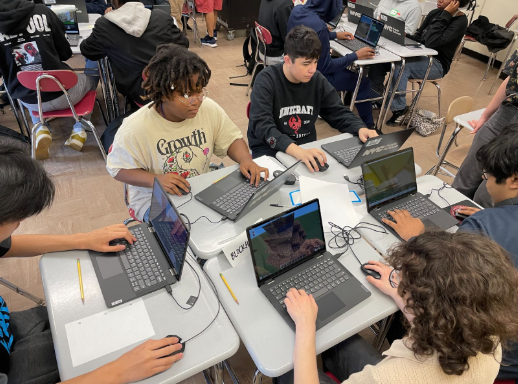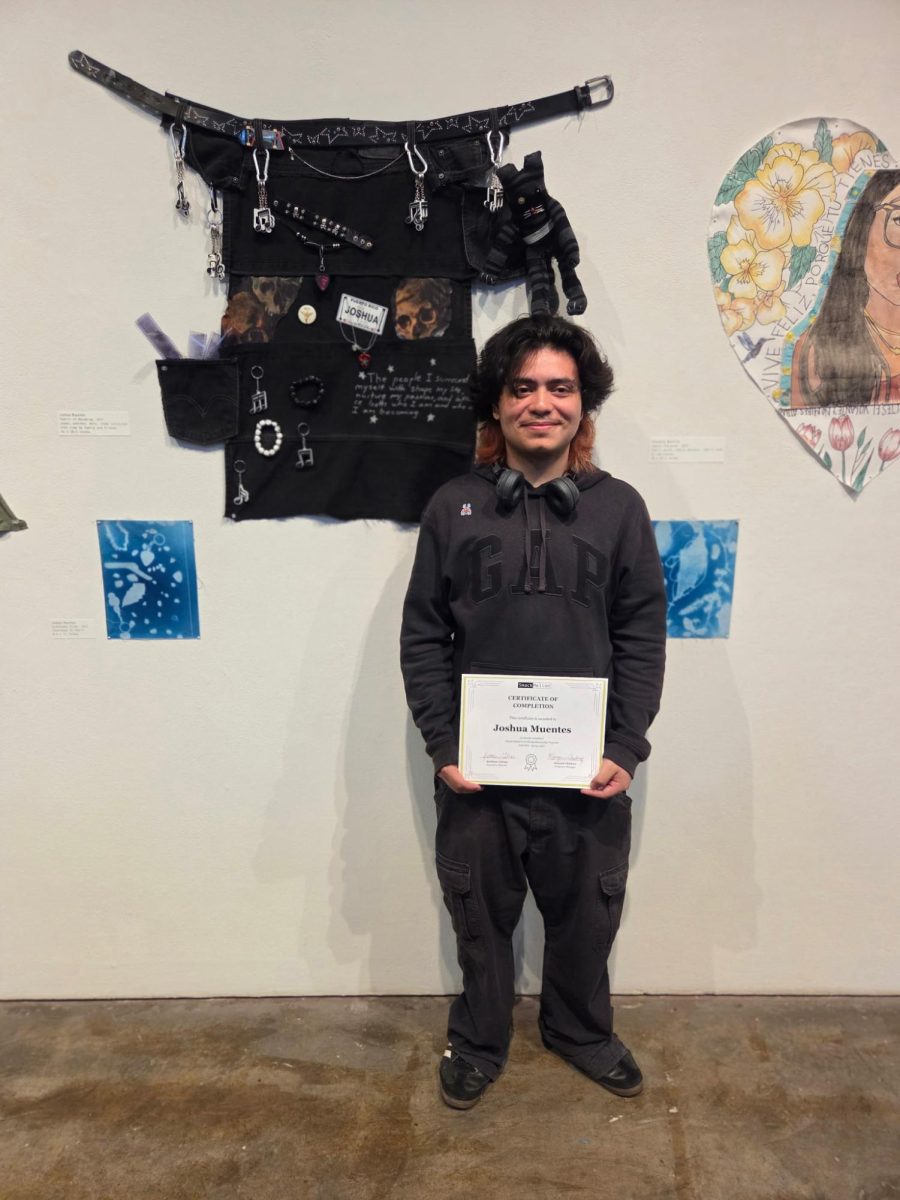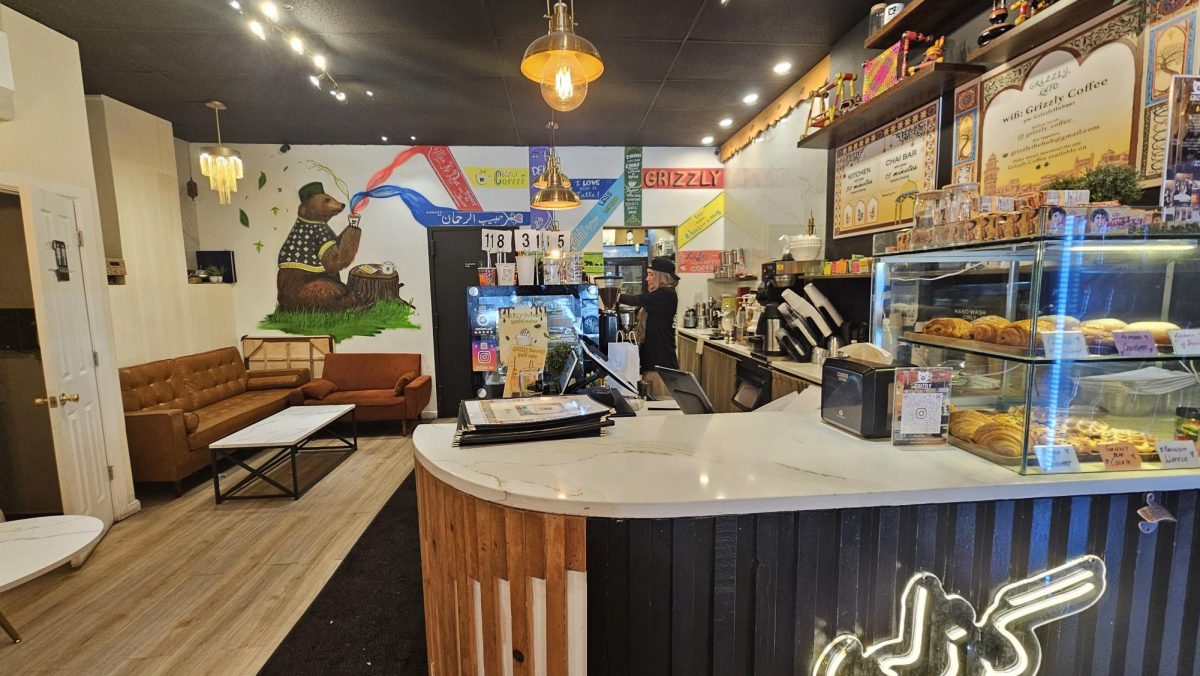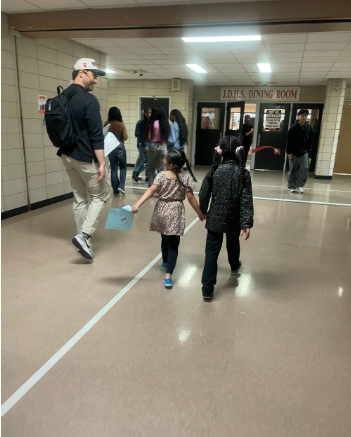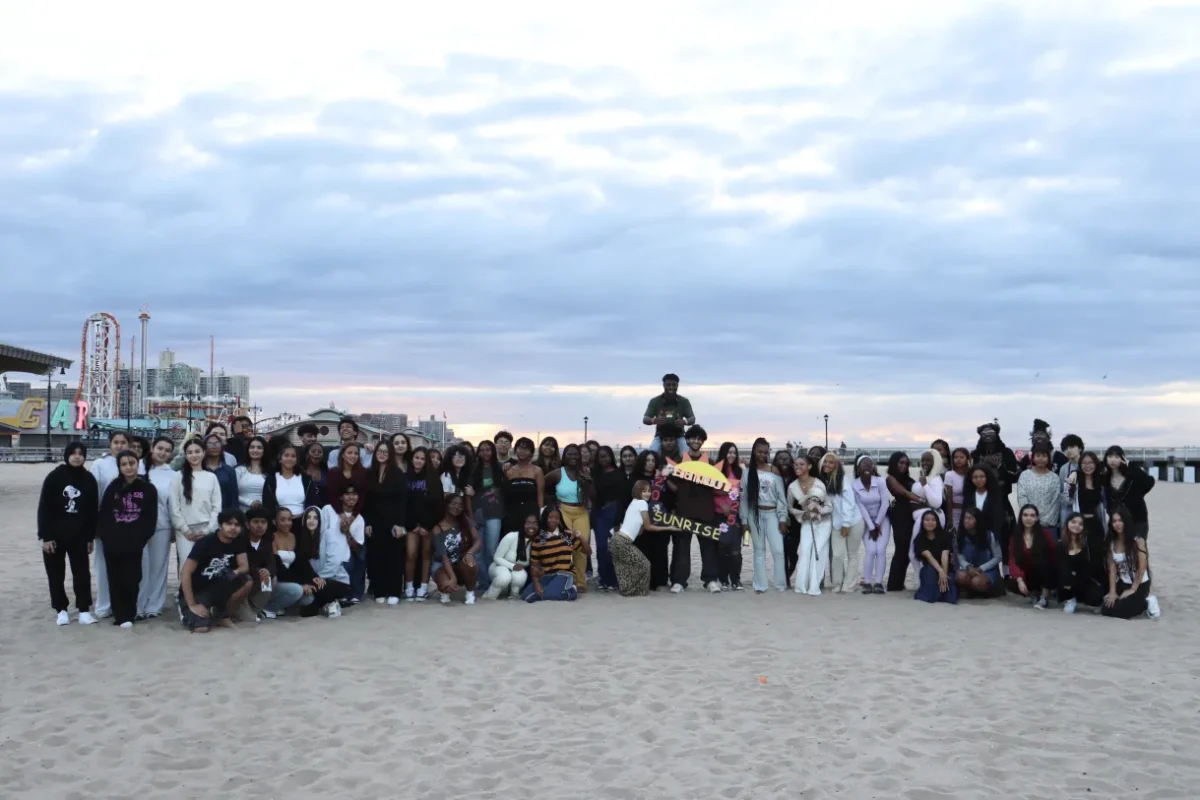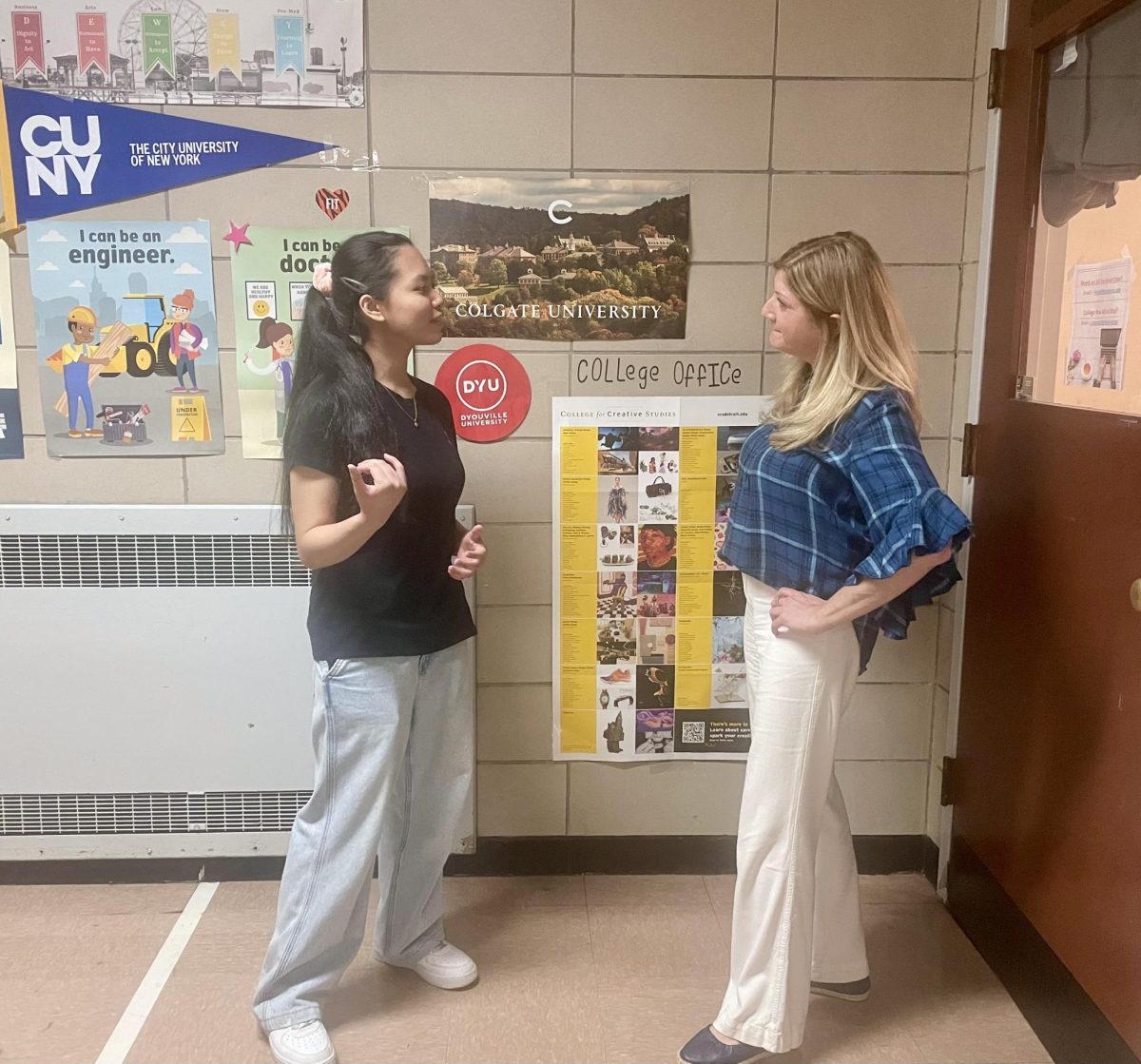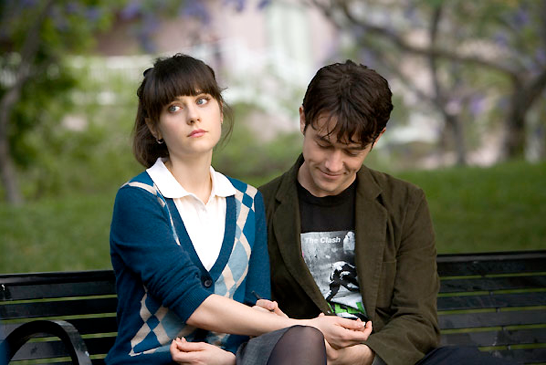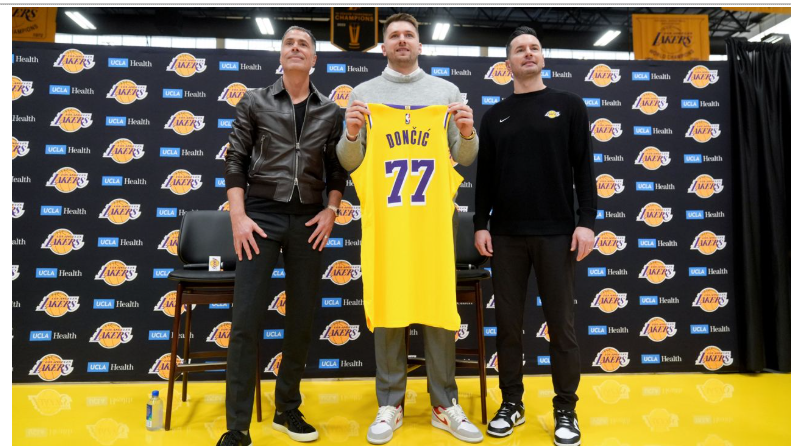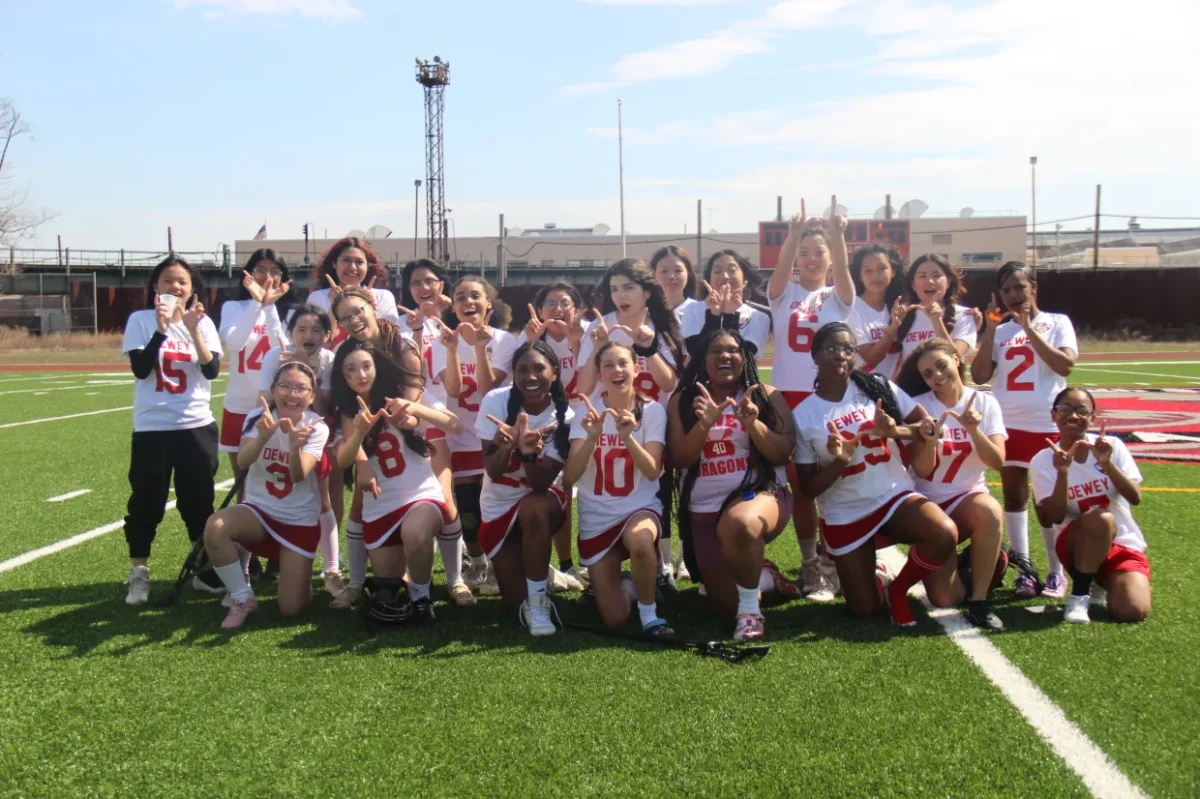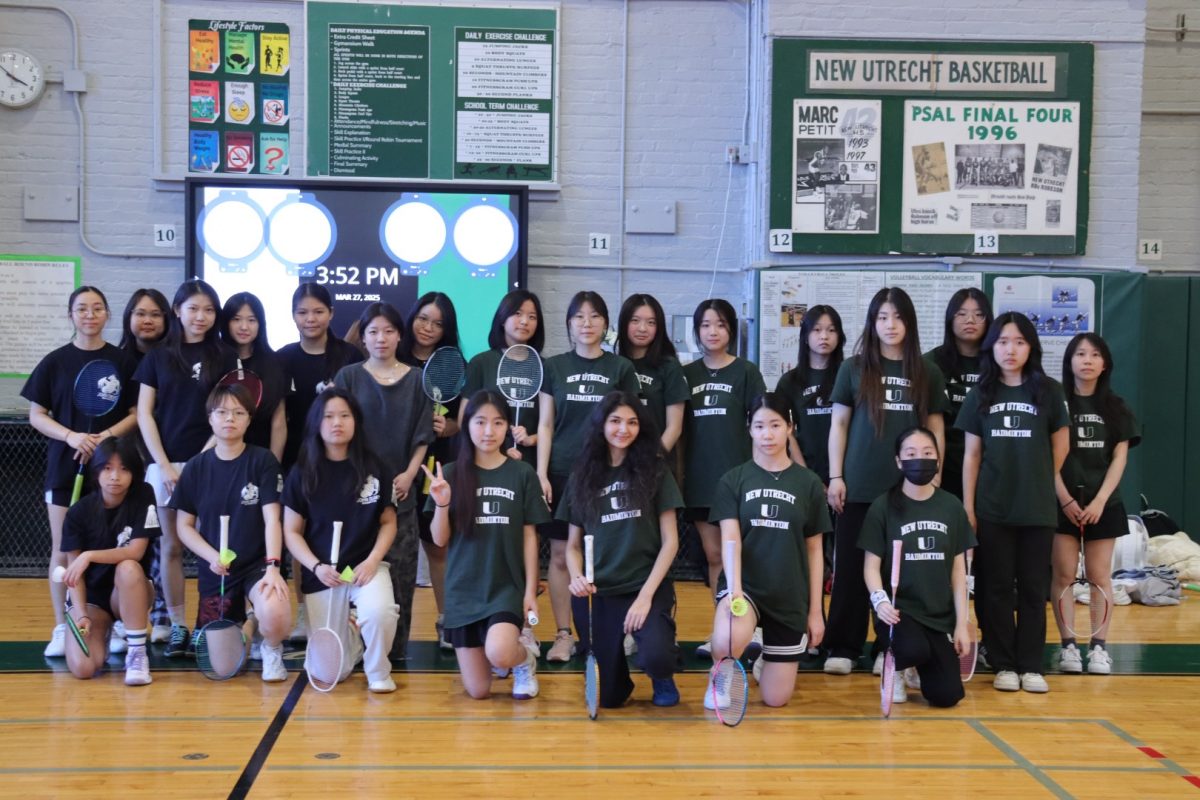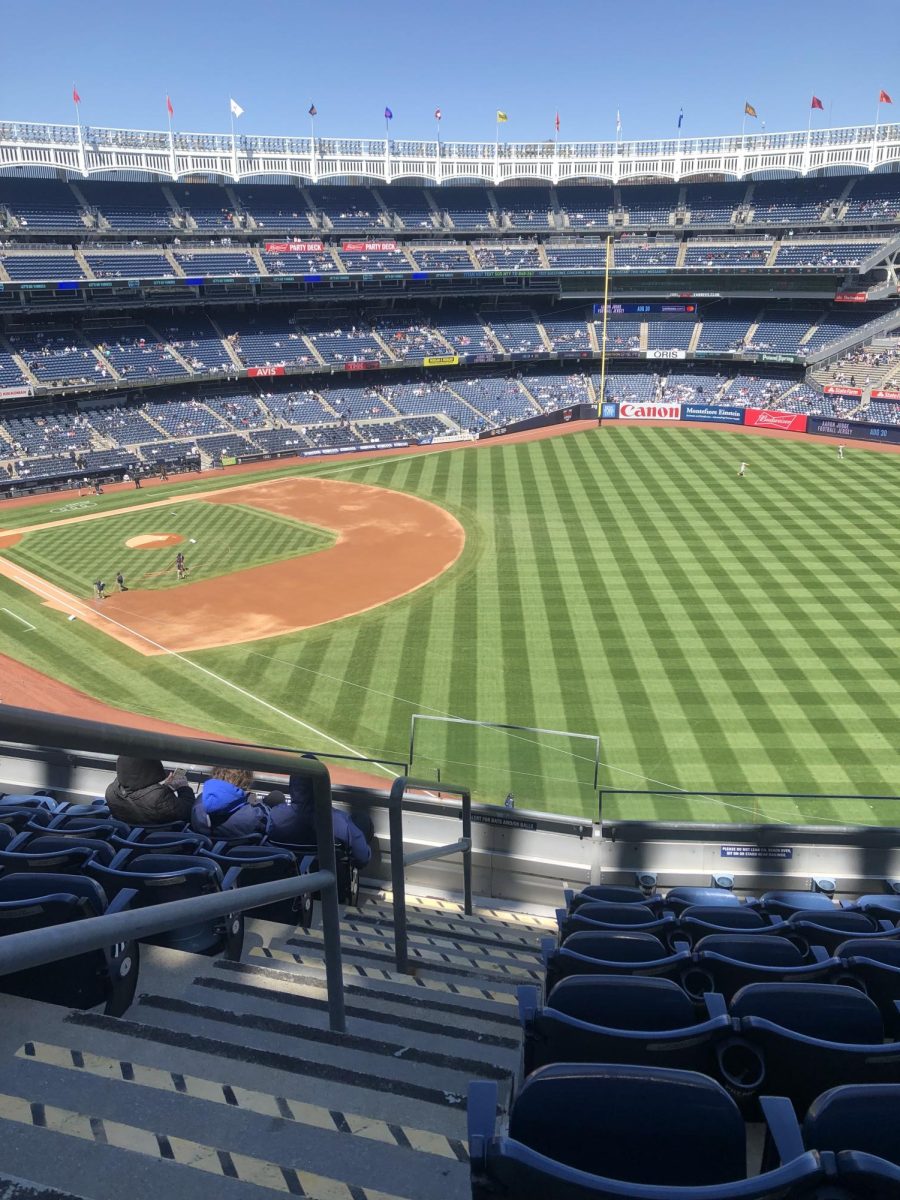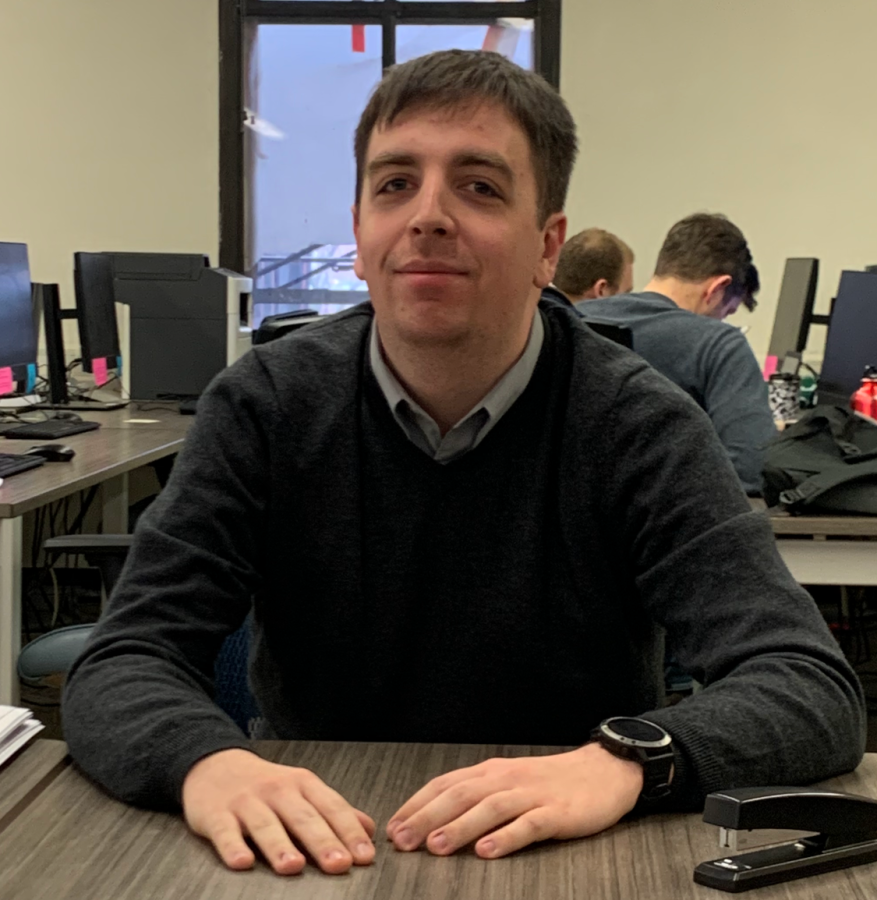A day in the life of a JDHS teacher
Chances are Mr. Pusz is working on something in the UFT Teacher center (Room 378), where he is pictured here.
March 6, 2023
Have you ever wondered what it’s like to be a teacher? On February 9th, I spent the day with Mr. Pusz from the Social Studies Department. This year Mr. Pusz is teaching three classes, one AP United States History class and two double period AP World History classes.
I choose Mr. Pusz for this article because he seems like a very interesting person to learn about, he takes his job very seriously and cares highly about his students and pushes them because he wants what’s best for them. Before first period, I visited Mr. Pusz’s classroom where I interviewed him and asked him about his life before school.
He wakes up at 5:30 a.m. every morning and gets ready for school. Once he arrives at school, he gets ready for the day by straightening up his classroom, setting up work for his students, (such as worksheets, tests, PowerPoints, etc.) and reviews the lesson plans he will teach on that day.
Once first period AP US History class started, he greeted the class with a “Good morning”, and asks everyone if they have any questions before he starts the lesson. This is something not all teachers normally do. He then began teaching the lesson clearly and asked his students questions and answered theirs.
The lesson was on the rise of America as a world power in the late 1800’s and covered the Spanish-American War and it’s immediate impact. At the end of first period, I asked Mr. Pusz how he felt the lesson went. He told me he thought it went well and was able to cover everything he needed to.
Next his second and third period AP World History class started, and everyone came in and began focusing on their work quietly. Because we were on a short Thursday, the class was working on short answer questions, a major component of the AP exam in May. Throughout the period Mr. Pusz walked around engaging and helping students who asked for help and making sure everyone was completing their work.
During some free time, he sat on the floor where I decided to sit and gave me the opportunity to interview him about his first three classes of the day.
Out of all your classes what class do you think works the hardest?
“Probably my first period class AP US, they’re juniors, they’re more concerned about college and their transcripts. But that doesn’t mean my AP World students don’t work hard- they’re just at a different phase at their academic process. I’m confident that when they all get to their upperclassmen stage, that they will rise to the challenge of becoming people who think, work, and function in a college mindset.”
Have you thought of the way you taught? Do wish you taught differently?
“Sure, I think an important part of teaching is being reflective, thinking about what you’ve done, what went well, what didn’t go well, and what you could do better the next time- the next day, the next month, and the next year. If you’re not constantly thinking about what you’re doing, you’re not living up to the fullest potential that you could be and you’re not serving the kids that your placed with well- and to me that’s malpractice. There are days where I come home and feel good about what’s happening, and there are days when I go home and I don’t feel good about what’s happening. I try to identify what I could do better, and then I shake it off and try to go on to the next day and do better.”
Do you ever wonder if you’ve done anything wrong in your teaching years?
“I don’t wonder- I know it. I’ve made a lot of mistakes. there are times in my years where I’ve lost patience with students which I regret later on, and I’ve said things that I think were unfair. There are kids that I think about now who I wish I could have reached and don’t know where they’ve ended up, but I’m hopeful they were able to figure things out because I saw them struggle and I felt helpless to help them, but I am a flawed person. I make many mistakes every day. I’ll never be a perfect teacher and I’ll never be a perfect person, but I’ll always try to be better.”
Do you think teachers deserve better treatment from some students?
“I think everybody likes to be treated well, but I also think that as a teacher you have to be aware of what your job is. Part of your job is social and emotional development. When you choose to work with people who are making the transition from child to adult, there’s going to be some growing pains and part of my job is to not take things personally but to as much as possible guide them in that transition, model good behavior, and demand better of them for themselves. You try to further development and to set the norms and expectations that they’ll experience as adults, so they can have a sense of what it’ll be like. So, do I like the growing pains? No, but it’s an important part of the job and I am happy to do that work- especially when it leads to growth.”
Mr. Pusz also spoke about his experience with his student teacher.
“This year I had a student teacher with me for the first couple of months of the year and it really gave me the chance to see the job through the eyes of someone who’s never done it before. That used to be my life. There was a time where it was all new to me, just like it was all new to him and I guess I’ve lost some of that since I’ve been teaching for close to 10 years. I’ve lost some of that “newness” and it’s become less of a daily adventure. But there’s a joy to the process that I’ve tried to recapture as much as possible. I enjoy what I do but I’d like to enjoy it more. Teaching is a privilege; one I don’t want to take for granted.”
During this interview I’ve thought of some wise things Mr. Pusz said such as his willingness to self reflect and constantly improve his teaching practice.
I personally think its healthier to be self-aware of the mistakes you’ve made in life instead of being oblivious and only focused on the right things you’ve done. You can only grow from your mistakes which is why it’s a mistake in the first place.
Fourth period was a free period for Mr. Pusz which gave me an opportunity to learn more about his life and job.
Do you enjoy being a history teacher?
“Yes, except for being the owner of the New York Yankees it’s all I’d ever wanted to do.”
If you weren’t a history teacher, what job would you have?
“I would probably have end up being a priest or a military officer.”
Do you think teachers have favorite students?
“Yes.”
They actually do?
“Sure.”
Do you have a favorite student?
“Yes.”
Why do teachers have favorite students?
“Because they’re human and just like any human they can’t fully remove their bias and their personal feelings from the equation. They do their best to, that’s what being a professional is, trying to remove your emotion from it to a large extent- but it’s impossible. Despite what some people say, ” we’re not all robots … 1s and 0s.”
If history wasn’t a subject, what subject would you teach?
“Probably English. I taught English in middle school. I liked reading and analyzing the books with the kids and talking about it with them.”
What do you think is easier to teach: History or English?
“I found English more enjoyable to teach. I like stories. There were times I’d tell the class to “circle up” and we’d just sit in a large circle all facing each other and discuss whatever we had just read. The conversations I had with my first ever class about To Kill a Mockingbird, The Hobbit and Treasure Island are memories I’ll cherish for the rest of my life. With History, there’s some stuff you just need to know which makes it boring at times. Sometimes content acquisition can be a bit dry. But if you look at history, it’s the story of humanity which I do- its incredibly interesting.”
How long does it take you to grade work?
“Maybe three to four hours a week depending on if we took a test or not”.
What about tests?
“If we do a test, it probably takes me about four hours to grade because in AP it’s all essays, so I have to read them. “
How was your first year of teaching?
“It was hard. I was only a couple years older than the kids I taught. I didn’t really know what I was doing. I was nervous.”
What subject was it?
“It was History and English. I didn’t really know anybody, I had to write all the lessons for the first time, so it was a lot of hours after school. I probably worked five or six hours every day after school. I was teaching two different classes, so I had to write a lesson for each one each day.”
Do you think being a teacher is hard work?
“Yes, you have to communicate the information, you have to assess whether [students] understood the information, and you’re working with young people. Humans are naturally impacted by their days, so there are challenges sometimes you can’t see or overcome. I can’t know where you’ve been or what you’ve been through before you walk in the door, and what you’re feeling, or what you’ve just done is critical to your ability and willingness to learn. It’s not working with a durable good where you’re going to get the same output consistently. You’re working with people, so you’ve got to be able to adapt and reflect.”
Do you ever get bored teaching the same thing over and over again?
“Nope, because its new for you, the student, each time I teach it. So, for me I know it but for the kids in front of me its new so it’s exciting.”
Do you ever get bored grading work?
“Every. single. time.”
How do you get motivation to keep grading work.
“If I stop grading, they’ll stop paying me if they stop paying me, I don’t have any money. if I don’t have money, I can’t pay the cable bill. If I can’t pay the cable bill, NO YANKEES. Grading is the work; teaching is the joy.”
Do teachers really gossip about students?
“We don’t gossip, we talk about you guys and how you’re doing across classes and how you’re developing and growing. We communicate- it´s part of trying to educate students. After you leave my class that doesn’t mean your day is done, I need to know how your day went if I’m going to be successful in helping you. We need the context.”
Are you concerned about students’ lives outside of school?
“Yes, desperately. You’re a person, not a product- I want you to be happy healthy and safe.”
Do students think you’re a great teacher?
“I think I’m polarizing. I think some people like me, and some people very much don’t like me.”
Do you care about a student’s opinion of you?
“Sure, but in the end, I’m most interested in whether or not they respect me. Whether they personally like me or not is nice- but I’m not running a popularity contest. I’m trying to get them to learn and grow. I’d prefer if they like me but that’s not my top priority.”
How do you as a teacher help kids if they’re struggling with work?
“I try to identify why they’re struggling, try to figure out the reason they’re having a hard time and then I try to develop a straightforward path to addressing that issue. I try to diagnose the problem and then adjust the specific problem. That’s not always easy sometimes it’s not possible.”
At the end of the school year how do you think you did from September to June?
“I can’t tell until the end of the year comes. At the end of the year, I sit down I think about what happened and I think about what went well what didn’t go well. From that I kind of assess my progress over the year. Generally, I’m very tired in June so I usually wait a couple of weeks into July then I really sit down, and I give myself a report card. I grade myself.”
Do you think COVID effected your years of teaching?
“Yes, COVID affected everybody very much. Education was one of the areas where it was most destructive.”
Do you think online school was different?
“It was horrible, it was the worst thing that ever happened- it was an educational apocalypse.”
If we were to have quarantine again and attend online school, what would you do differently that you didn’t do before?
“I think I’d try to record myself delivering content so that even if a student didn’t or couldn’t come to class at the set time, they could still access a video of me giving the presentation. So, I would try to make it more flexible for them as much as possible.”
This interview really opened my eyes about how teachers care and think about us as students. They’ve also experienced things similar to us like being new to something, learning and doing hard work, and Covid affecting their ways of teaching the same way it affected our ways of learning.
I really like how nonchalant Mr. Pusz is when it comes to someone having an opinion on him. I think everyone has a right to their own opinion, but as a person you really shouldn’t care what people think about you.
I’ve interviewed some of his students and it was a mixed response when I asked, “Do you think Mr. Pusz is a great teacher?” compared to the people who said yes, others had very decisive answers like “No, because he moved my seat so I can’t talk to my friends.” and, “The work is too hard.” I also personally dislike when some teachers move seats, but some need to realize when you’re taking a crucial class like an AP class sitting with your friends isn’t really a responsible option.
In my opinion I think Mr. Pusz is a very great teacher; I’ve learned a lot during the short amount of time I had him as my history teacher my sophomore year. Everyone considers teachers like him as mean, strict, annoying, or boring- when in reality most of them only care about our well-being and the education they’re providing.
They just want what’s best for us because personally speaking, I’d rather be in a class where the teacher is committed to education because I learn more compared to a class where a teacher doesn’t care what you do or if you’re paying attention to their lessons. At the end of the day, during eighth period, I interviewed Mr. Pusz for the last time while he was preparing tests for his students.
What are your after-school plans?
“I have a meeting after school, go home have dinner …. maybe watch a movie, go for a walk, do some schoolwork then go to bed.”
What is your life like outside of school?
“It’s less busy, not a lot of kids involved…my mom and I really want my sister to have a baby.”
Do you prefer short days or regular school days?
“Regular days, they’re better because the periods are longer, and it gives me more time to work with kids.”
Where do you see your students in 10 years?
“I hope they are happy, safe and self-reliant and doing something with purpose.”
At the end of the day, I thanked Mr. Pusz for his time and consideration for my article. Learning about teachers lives in and outside of school is very interesting to me because we see them for only eight hours every Monday – Friday and don’t hear about them after that.
Learning about someone who’s life is never really spoken about can sometimes be very educational because you can learn a lot of things coming from their own experiences and understand their point-of-view with certain things, like I did when I interviewed Mr. Pusz.

